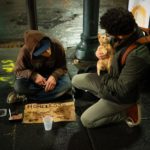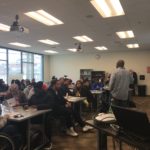HSD Announces RFQ Awards for Expanded Neighborhood Outreach
Today, the Seattle Human Services Department (HSD) announced funding awards to three outreach agencies—REACH, Seattle Indian Center, and Urban League of Metropolitan Seattle—in response to the 2021 Expanding Neighborhood-Specific Outreach Expedited Request for Qualifications (RFQ). The cumulative awards total will equal $768,000 and add seven full time equivalent employees (FTEs) in underserved neighborhoods in Seattle: three FTEs covering West Seattle, Delridge, South Park, and Rainier Valley vicinities; two FTEs in the Lake City Vicinity; and two FTEs in Northwest Seattle.


